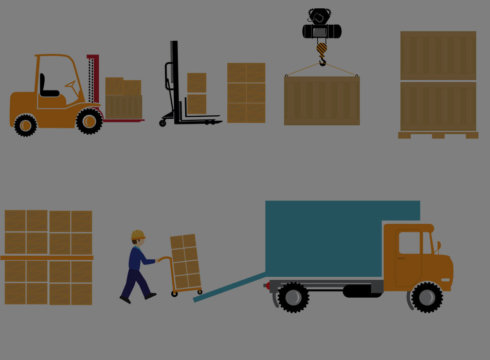Inc42 Daily Brief
Stay Ahead With Daily News & Analysis on India’s Tech & Startup Economy
Transportation, that crucial link which acts as the nervous system of an economy, is at a crucial juncture in India. With the rise of ecommerce and online platforms creating the need for bulk delivery of products, the market for logistics is growing at an exponential pace. There are, however, a slew of problems which are inhibiting the logistics industry from achieving its full potential.
Broadly speaking, the Indian logistics sector incorporates the entire inbound and outbound segments of manufacturing supply chains. This sector, however, is fragmented and run by a multitude of individual players in the absence of a formal regulatory structure governing it.
The problems engulfing the sector are manifold and can be summed up as follows:
Inadequate Infrastructure
Although massive developmental work has been undertaken on the main routes of transportation, such as the Golden Quadrilateral, doorstep delivery becomes a big problem due to deteriorating conditions of roads in the interiors of the country. This enhances the cost of wear and tear of the vehicle which in turn increases the operating costs for logistics players.
Conventional Ways Of Operations
One of the most important bottlenecks troubling the Indian logistics scenario is the obsolete way in which things are run. For instance, if there existed a nation-wide broadband logistics IT network then a trucker initiating his journey in Kerala could find all the papers there, get all inspections done, and move on without any interruptions to his destination.
This would also help vehicle owners and clients engage with each other, leading to the elimination of the middlemen from the equation. Middlemen also charge brokerage and hence lead to an increase in overall operational costs.
Economies Of Scale
The Indian transport industry is a $385 Bn industry, yet it suffers from business trade-off loss due to its distance from technology. For instance, there is an immense scope in equipping vehicles with GPS trackers as lack of a transparent network between vehicle owners and those in need of transportation services often leads to transporters making empty journeys. The existence of a route tracker will help customers to engage transporters plying on the same route for delivery.
Constant Costs And Government Barriers
Even during lean business seasons, the costs associated with travel, for instance, inter-state permits, check posts, licensing etc. remain constant. Furthermore, the logistics industry is fraught with cartel-government nexus, which enhances the costs in terms of bribes. Bringing in transparency and regulations in this industry will help the cause of streamlining the logistics industry.
Two key areas of the logistics industry that require immediate attention are cost and value added services.
Due to lack of connectivity, almost 5-7 Lakh vehicles are unable to function at an optimum. Bringing in technology will help to lower the logistics costs, which have been estimated at 13-14% of India’s GDP. Through digital streamlining of communications between stakeholders and initiating an infrastructural as well as policy change, the logistics industry of India can emerge as a pivotal piece in the growth story of the Indian economy.
[The author of this post is Lokesh Kumar Gupta – the founder Director at Load24x7, a mobile app designed to connect goods and vehicles.]
Note: We at Inc42 take our ethics very seriously. More information about it can be found here.


